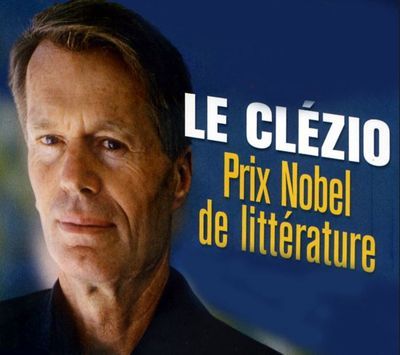J. M. G. Le Cl��zio ��� Nobelized, but much read?
By ADRIAN TAHOURDIN
When J. M. G. (full name Jean-Marie Gustave) Le Cl��zio won the Nobel Prize in 2008, the Swedish Academy called him ���an author of new departures, poetic adventure and sensual ecstasy, explorer of a humanity beyond and below the reigning civilization���. This strikes me as a fine specimen of the higher waffle; either that or ��� ���beyond and below the reigning civilization���? ��� something was lost in translation. And yet I can see what they mean. Le Cl��zio has long focused on the marginalized and downtrodden in society, using his novels as a means to explore issues such as sexual exploitation, political oppression and environmental degradation. It hasn���t always made for good fiction; his last two published (and as yet untranslated) novels, Ourania (2005), and Ritournelle de la faim, published weeks before the Nobel announcement, come to mind.
But when Le Cl��zio is good, he���s very good. His first novel, Le Proc��s-verbal, published in 1963 when he was twenty-three and translated as The Interrogation, remains a strange and brilliant book. Some critics saw affinities with the nouveau roman but I think it���s out on its own: experimental, yes, but completely original. It���s arguably his best book.
Le Cl��zio with his wife Marina in 1963, after the publication of his first novel Le Proc��s-verbal
Much more recently, and in a very different vein, there has been the 560-page R��volutions (2003), which takes in post-Revolutionary France, the Algerian war and the student massacres in Mexico City in 1968. An old-fashioned historical narrative, the book is a complete page-turner; it���s a mystery to me that it hasn���t been translated into English. I think readers would lap it up.
Roughly midway between those two novels is Le Chercheur d���or (1985), largely set on the island of Mauritius (where Le Cl��zio grew up). It was a bit of a surprise to see a translation of it, by C. Dickson, arrive in the office this week: The Prospector (Atlantic Books) is published in April. It was a surprise because there has already been a translation, by Carol Marks, less than ten years ago, of what is unquestionably one of Le Cl��zio���s best novels.
The book opens thus in 1892:
���Du plus loin que je me souvienne, j���ai entendu la mer. M��l�� au vent dans les aiguilles des filaos, au vent qui ne cesse pas, m��me lorsqu���on s�����loigne des rivages et qu���on s���avance �� travers les champs de canne, c���est ce bruit qui a berc�� mon enfance.���
Here is Marks���s version of the opening:
���As far back as I can remember I have listened to the sea: to the sound of it mingling with the wind in the filao needles, the wind that never stopped blowing, even when one left the shore behind and crossed the sugarcane fields. It is the sound that cradled my childhood.���
And Dickson���s:
���As far back as I can remember, the sound of the sea has been in my ears. Mingled with that of the wind in the needles of the she-oaks, the wind that never stops, even when you leave the coast behind and cross the cane fields, it���s the sound of my childhood.���
Funny how different translations can be. The first version strikes me as more lyrical, the second more direct. I���m not sure I like ���she-oaks��� even if it appears to be technically correct. Why not keep the intriguing ���filao��� as Marks has done? I like the directness of ���it���s the sound of my childhood���; but then ���cradled my childhood��� is exact for ���berc�� mon enfance���. Thankless task being a translator.
Peter Stothard's Blog
- Peter Stothard's profile
- 30 followers





